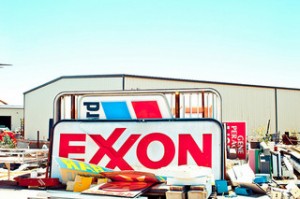How to Be ExxonMobil
Foreign Policy interviews Steve Coll about his new book Private Empire, which is about ExxonMobil’s ongoing dominance. Coll explains the company’s competitive strategy, which it relies on when competing against other companies for African contracts as well as with state-owned oil companies in the Middle East:
I also think that the way they win these deals in a place like Chad or Papua New Guinea or Angola is, in effect, they go to the host country and say: “Look, we recognize that you can deal with the Chinese, and you’ll get soft loans and guns and things that you think are more valuable than what we can offer you, but what you’ll also get is really lousy project management. You’ll get less oil pumped, you’ll get less royalties, you’ll get less taxes, so you’ll end up net poorer. Why not come work with us under our rule of law, under a really straightforward contract? And what our record shows is that you’ll end up with more cash faster — and then you can use that cash to buy whatever guns you want? But you’ll have the money to carry out what ever plans you have; and we’re reliable, we’ll come in on time.”
It’s sort of like if you’re buying a new appliance, and you’re going to the store and somebody offers you rebates and a free toaster and three other things to incentivize you to buy one brand. Well, you look at that brand and you think oh, that thing’s going to break down in a few years. Whereas the other one, it’s more expensive, but it’s top of the line. And that’s kind of ExxonMobil’s argument.
And here’s a peek at how the company assesses geopolitical risk in the countries where it does business:
They have basically a political risk department that is central to their corporate planning and to their annual strategy discussions at headquarters. It’s run by a woman named Rosemarie Forsythe who used to be on the National Security Council, and she basically goes into the management committee — which is the top group of executives that’s looking out over the world from quarter to quarter and year to year — and she presents political risk analysis, both regional and global. I spoke to her a little bit about what her PowerPoint show sounds like, and basically she describes a world in which more and more of the oil that ExxonMobil is going to be interested in or already owns is in unstable places; that’s what the basic map looks like. They color code it and they divide the world into different groups and so forth, but fundamentally the oil they can access is in unstable places. Now an academic might also point out that the oil is in unstable places because oil can be destabilizing in weak countries, but I’m not sure ExxonMobil does that analysis.


Comments